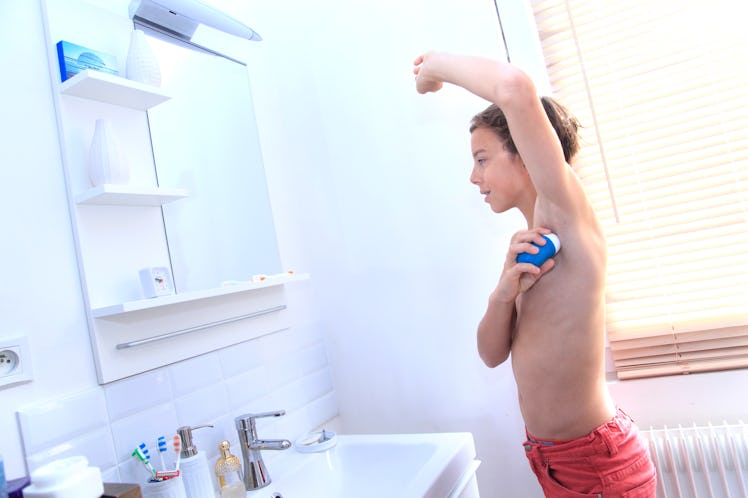Why Preteens Smell Bad As Puberty Gets Started
Stinking is a perfectly normal part of growing up and, with a little science, parents can guide their children through the smelly years with minimal olfactory damage.

Puberty stinks. Months before your daughter suffers her first acne outbreak or your son starts scrutinizing the single hair on his upper lip, new hormones will flood your children’s bodies and kick off a cascade of stench — mediated by oils, skin bacteria, and a crop of new sweat glands. The result? Unbearably smelly adolescents, who are often unaware of their own reek. Invest in deodorant, but don’t panic. Stinking is a perfectly normal part of growing up.
“Teenagers actually do stink,” says Ann-Sophie Barwich, Ph.D., a cognitive scientist, philosopher, and historian who studies smell at Columbia University. “It’s very hard to say out loud. People are very touchy-feely about body odor. But it’s actually based on hormonal changes.”
Girls are no exception. “Girls stink too,” Barwich says. “We just have a better reputation.”
Body odor is one of the earliest signs of puberty. Due to hormonal changes, children begin to sweat profusely as their sweat glands start pumping out more moisture. But sweat alone does not a smelly child make — indeed, sweat itself is odorless salty water. The stench comes from specialized sweat glands located under the arms and in the groin, which produce oils that mix with the sweat, giving bacteria on the skin something to munch on. As the bacteria break down these oils and colonize your child’s dark, damp regions, the chemical byproduct is what offends.
“When teenagers go into puberty, they sweat more — not just salty water, but oil — and they have higher activity in their sweat glands,” Barwich says. “When that gets broken down by bacteria, that’s where the actual stink comes from. Typical body odor stabilizes by the end of puberty.”
Body odor is often the earliest sign of puberty, Barwich says, appearing long before most physical changes. She suspects that this may be an evolutionary boon, allowing humans to detect sexual maturity in its earliest stages via chemical signals. “Our noses are better than we think,” Barwich says. “Sometimes you need to decide on things before you can see them, because many things become visible far too late. You sniff your milk. You don’t look at it.”
Still, however powerful our adult sense of smell may be, you may find that your fetid adolescents are unaware of their own stench and need regular reminders to shower and apply deodorant. “You habituate to your own odor,” Barwich says. “It’s normal that teenagers might not realize when these changes happen. It’s the parent’s job to go, ‘boy, you should shower.’”
Part of this blissful ignorance may be about not just habituation but sensitivity to smell, too. Studies suggest that teenagers are particularly bad at picking up foul odors, such as smoke, garlic, and onion.
The trick is to find a way to discuss and manage your child’s body odor without stigmatizing it. Parents can cut down on the pubescent B.O. by encouraging children to shower daily with antibacterial soap, apply deodorant liberally, and switch from synthetic outfits to simple cotton, which will reduce the amount of sweat.
Parents can encourage these behaviors by championing them as rites of passage, or celebrating them and explaining that body odor is normal, bacterial, and nothing to be ashamed of. Barwich suggests some combination thereof and, once the most offensive odors are being managed, she advocates a liberal approach to explaining B.O. to preteens. “It’s important to get rid of the stigma of body odor,” Barwich says.
“You might smell. What’s so bad about that?”
This article was originally published on